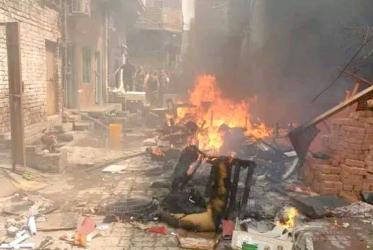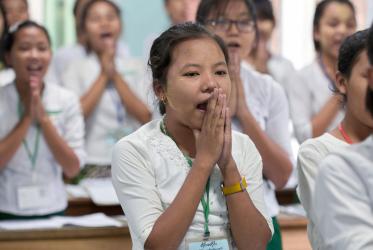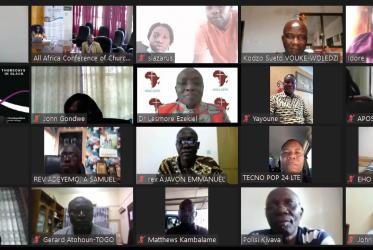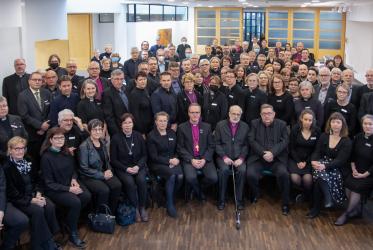Displaying 1 - 20 of 62
Squid Game and Ganggang Sullae: workshop reflects on youth poverty
16 September 2022
New student body at Bossey Ecumenical Institute “a source of joy”
14 September 2020
Young Africans are eager to grapple with challenges
09 January 2020
Young people in Togo: “Hear our voice! We want to tell our stories!”
07 November 2019
Hanbeet Rhee: “Young people can be bridges”
17 October 2019
A passionate Korean feminist and ecumenist
21 August 2019


















